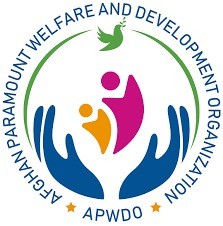Food security and agriculture
APWDO is dedicated to addressing Afghanistan’s food insecurity through sustainable agriculture, resilient livelihoods, and inclusive food systems. As a partner of the World Food Programme (WFP) and an active member of the Food Security and Agriculture Cluster (FSAC), we contribute to coordinated humanitarian and development responses that support the most vulnerable.
Our programs are designed to support small-scale farmers, women, and displaced families through a combination of emergency assistance and long-term agricultural development. We implement integrated approaches that combine climate-smart farming, livestock care, clean water access, and market-driven solutions to create lasting impact in rural and conflict-affected areas.
Recent Projects
- Cash for Food Assistance in Parwan, Kunar, and Paghman, funded by OCHA, supporting vulnerable households through emergency food security interventions.
- Winterization and Food Support through ES/NFI projects in Badakhshan and Kunar, delivering food kits and essential items during seasonal crises.
- Maternal Nutrition Support in Kunar, through a UNICEF-funded project, providing cash assistance to 1,500 Pregnant and Lactating Women (PLWs) to improve maternal and child food security
- Community-Based Education and Nutrition in Badghis, through OCHA Education Cluster funding, providing learning opportunities and snacks for children in remote areas
Past Achievements
- Greenhouse Rehabilitation in Kandahar under a USAID/IRD/KFZ project, upgrading greenhouses to enhance sustainable food production.
- Women Farmers Training in Helmand, Kunar, and Khost through a USAID/Creative-CCI initiative, equipping 120 women with modern farming techniques
- Perennial Crop Rehabilitation for 200 farmers in Kandahar, teaching best practices in horticulture and long-term crop sustainability.
- Technical Assistance to Local Farmers across six districts of Kandahar, building capacity in modern agriculture for improved productivity.
- Forest and Wildlife Conservation in Nuristan, supported by UNDP/GEF/SGP, integrating environmental protection with sustainable land use and community livelihoods
Recent Projects
Our implementation model centers on adaptive co-creation with farming communities. We collaborate closely with the Ministry of Agriculture, local shuras, and women’s cooperatives to design context-specific agricultural solutions that respond to real needs on the ground.
During the 2024 locust invasion, APWDO deployed rapid-response teams that trained farmers in biopesticide application, helping save over 400 hectares of wheat from destruction. Our female extension workers lead home-based poultry and kitchen garden programs, breaking cultural barriers while enhancing household nutrition and women’s economic roles..

Women-led hygiene training using illustrated Dari manuals in Balkh


With strategic donor support, we drive systemic change:
- Climate-resilient seed banks now support 120 villages in Baghlan Province, ensuring seasonal food security.
- Adhering to FAO resilience standards, 85% of our staff are recruited locally.
- Quarterly participatory reviews inform adaptive program design and community accountability.
- We integrate WASH practices with livestock hygiene to reduce disease outbreaks, improving productivity and public health.

